10 main Russian poets you need to know
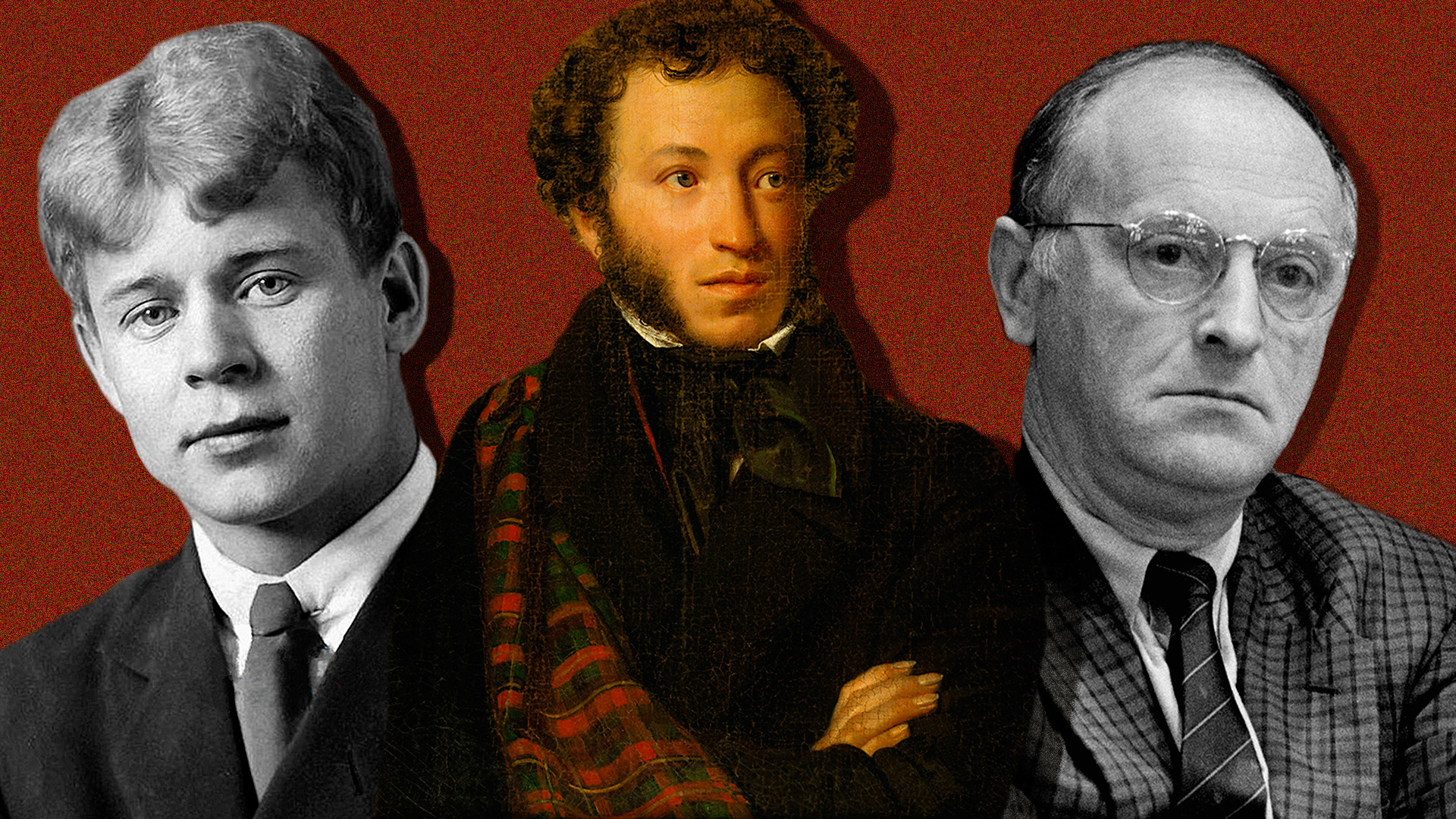
1. Alexander Pushkin (1799-1837)
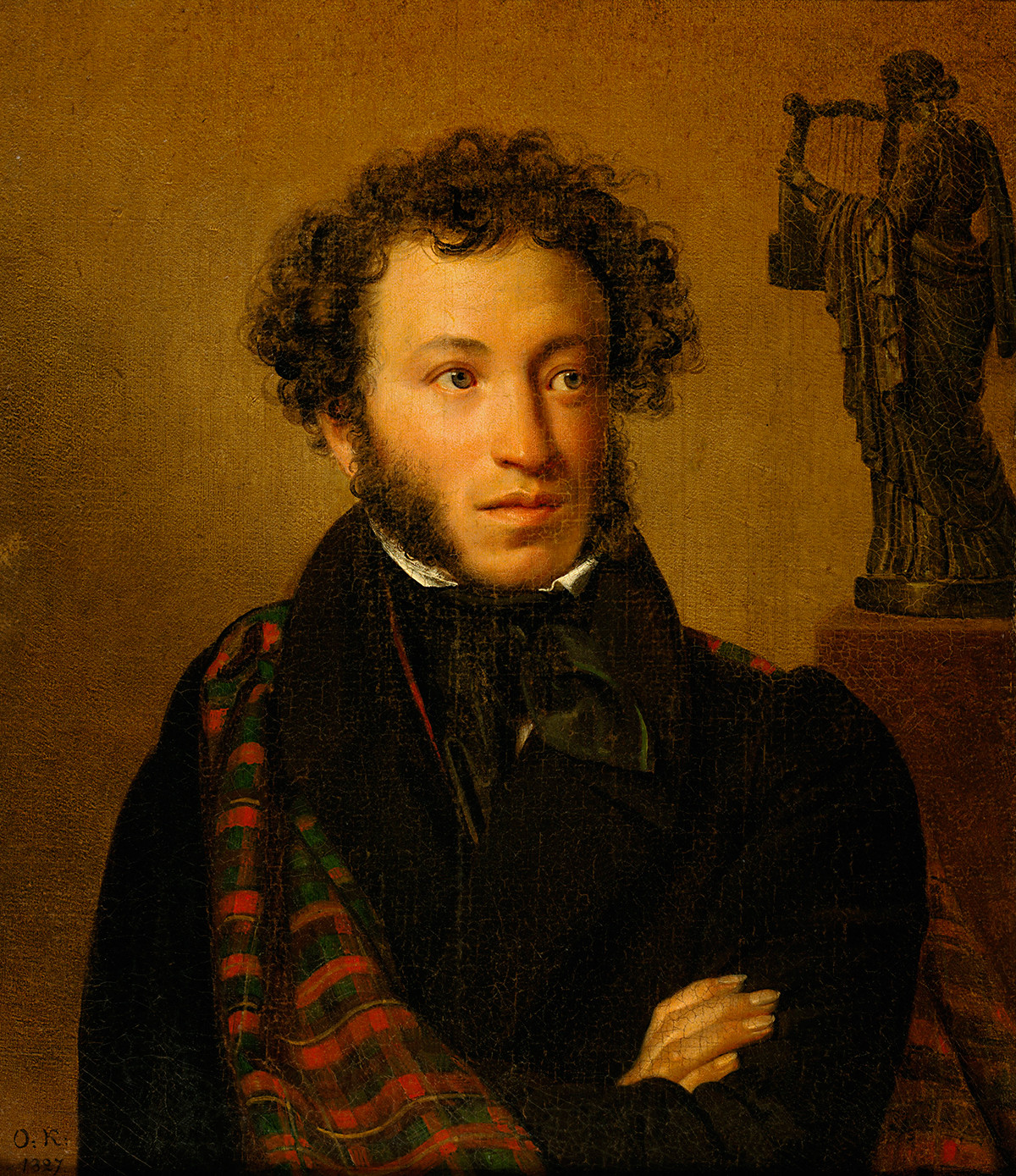
We just couldn't start with anyone else. "Pushkin is our everything," Russians often say. He is without a doubt our main poet. During his relatively short life of 37 years (it's common for Russian poets to die young), he created poetic works in all possible genres, and also wrote drama plays and a verse novel, Eugene Onegin, which has a unique 'Onegin stanza' with a strict inner order of rhythms and rhymes. It's hard to find a topic that Pushkin would not dwell on through his poetry: from love and friendship, to freedom and loyalty to the state, and finally to a sense of art and life, and the very special feelings that a man feels as he gets older and his life is coming to an end.
Must read Pushkin poems:
- I recall the wondrous moment
- I built myself a monument, one not man-made
- A letter of Tatyana to Onegin (From “Eugene Onegin”)
Read more about Alexander Pushkin here.
2. Mikhail Lermontov (1814-1841)
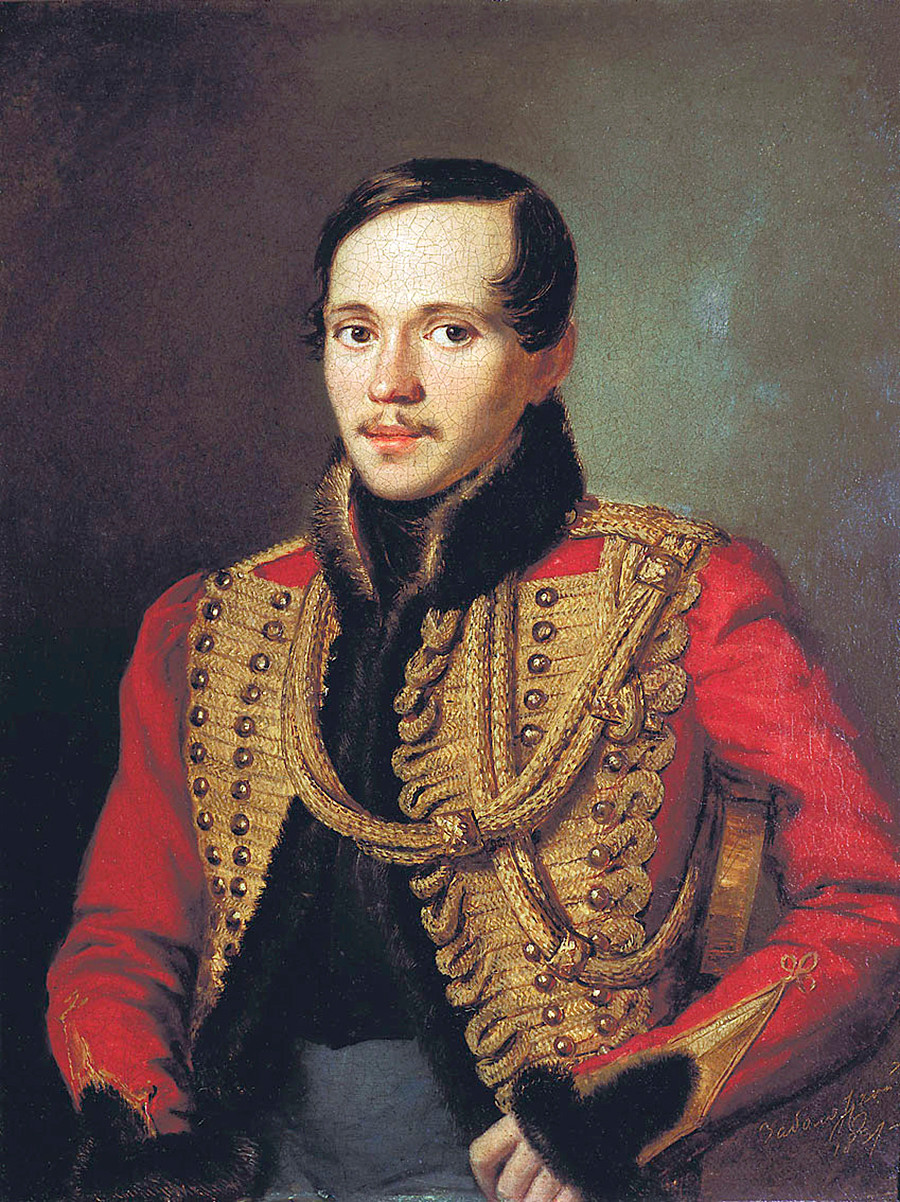
Lermontov lived just 27 years, and like Pushkin, he died after being injured in a duel. He first gained fame as well as official disgrace after blaming St. Petersburg high society for Pushkin's death (The Poet's dead! - a slave to honor -/ He fell, by rumor slandered). For this poem he was exiled to the Caucasus region. Lermontov is best known for his romanticism in poetry where he put his lyrical character in opposition to the rest of the world. The poet is also keen on the image of the Demon, a fallen angel who is alone against the universe. Inspired by the Caucasus and its legends, Lermontov wrote two brilliant long poems: Mtsyri and Demon. He is also an author of the frequently staged drama, The Masquerade, where a protagonist falls into insane jealousy and kills his innocent wife.
Must read Lermontov poems:
- Death of the Poet
- Borodino
- I go out on the road alone...
Read more about Mikhail Lermontov here.
3. Nikolai Nekrasov (1821-1877)
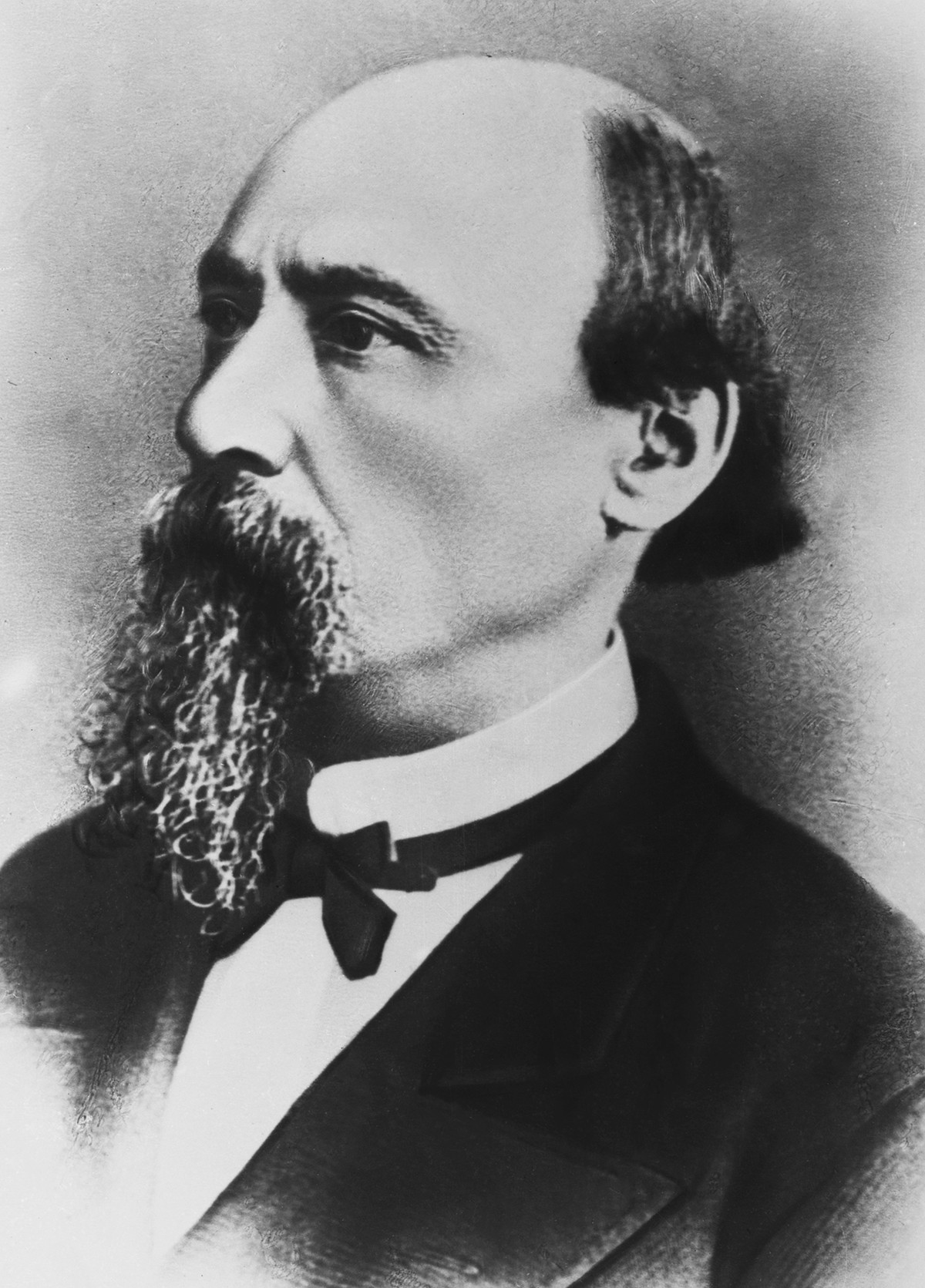
In the history of Russian literature Nekrasov was first of all important as a reputable editor of the main literary magazines, Sovremennik (The Contemporary) and Otechestvennye Zapiski (Notes of the Fatherland), where he published the best works from the most prominent writers of the era, including Leo Tolstoy, Fyodor Dostoyevsky, Ivan Goncharov and Ivan Turgenev. In his poetry, Nekrasov was first to uplift the ‘low’ peasant language, and was first to raise the issue of the serfs’ sufferings. His most famous work is a long epic poem, Who Is Happy in Russia?, where he tries to define and outline all of Russia's problems and looks for people who live happily in Russia… Spoiler: they can’t be found.
Must read Nekrasov poems:
- Who Is Happy in Russia?
- Russian Women
- Grandpa Mazai and the Hares
4. Fyodor Tyutchev (1803-1873)
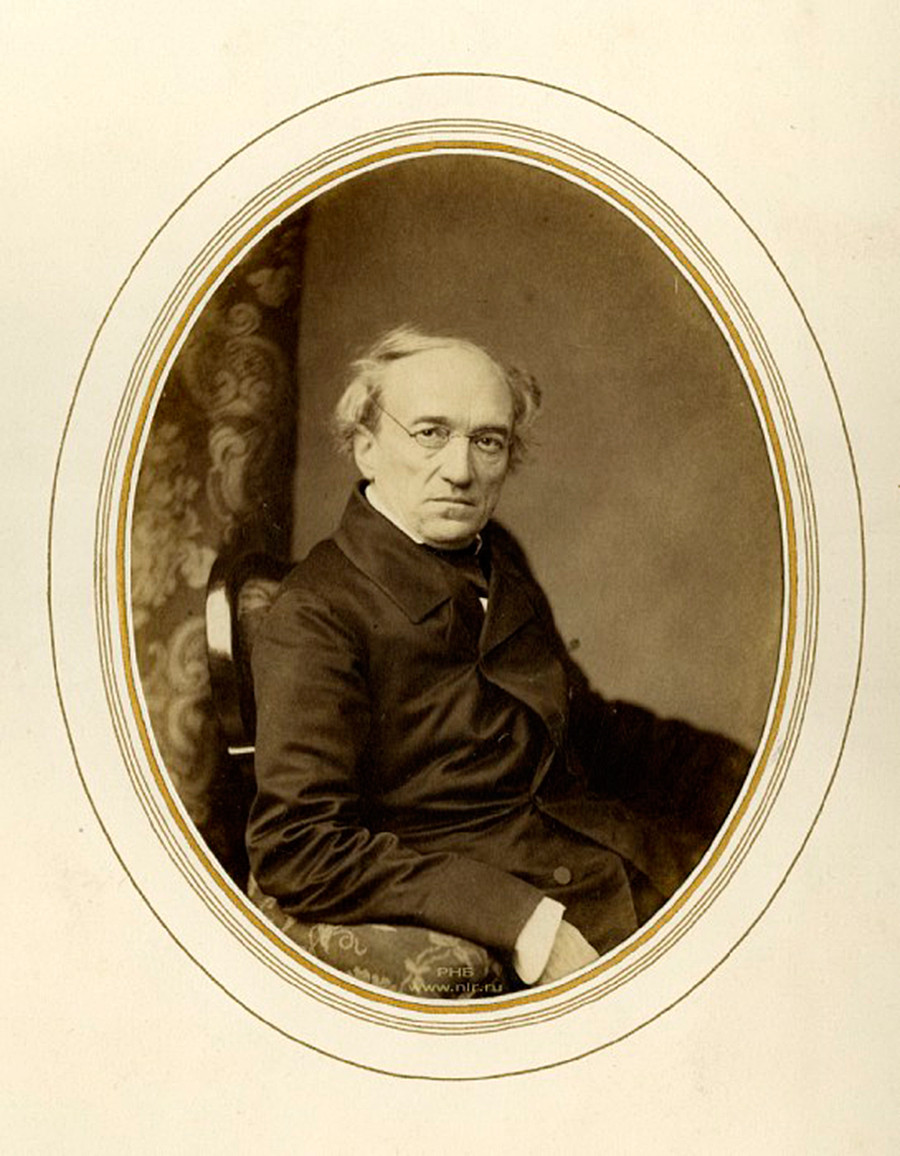
Tyutchev was a diplomat and worked 20 years in Germany, and he was the first to translate Henrich Heine into Russian. His poetry is very diverse - from archaic odes and lyrics about nature that are beholden to romanticism where a character is left alone against the universe, and has a dialogue with the skies and stars. In his last period of poetry, Tyutchev turned to patriotic stanza, ruminating on Russia and its unique path in history. He strongly believed in Russia and thought that the country had to stay strong and withstand attacks. Tyutchev formulated the most famous poem about his homeland:
You can't understand Russia with your brain,
You can't measure it with the standard instruments:
She has a particular status –
In Russia you can only believe.
Must read Tyutchev poems:
- Silentium!
- I love a thunderstorm in May...
- Just as the ocean cradles our Earth's orb
Read more about Fyodor Tyutchev here.
5. Alexander Blok (1880-1921)
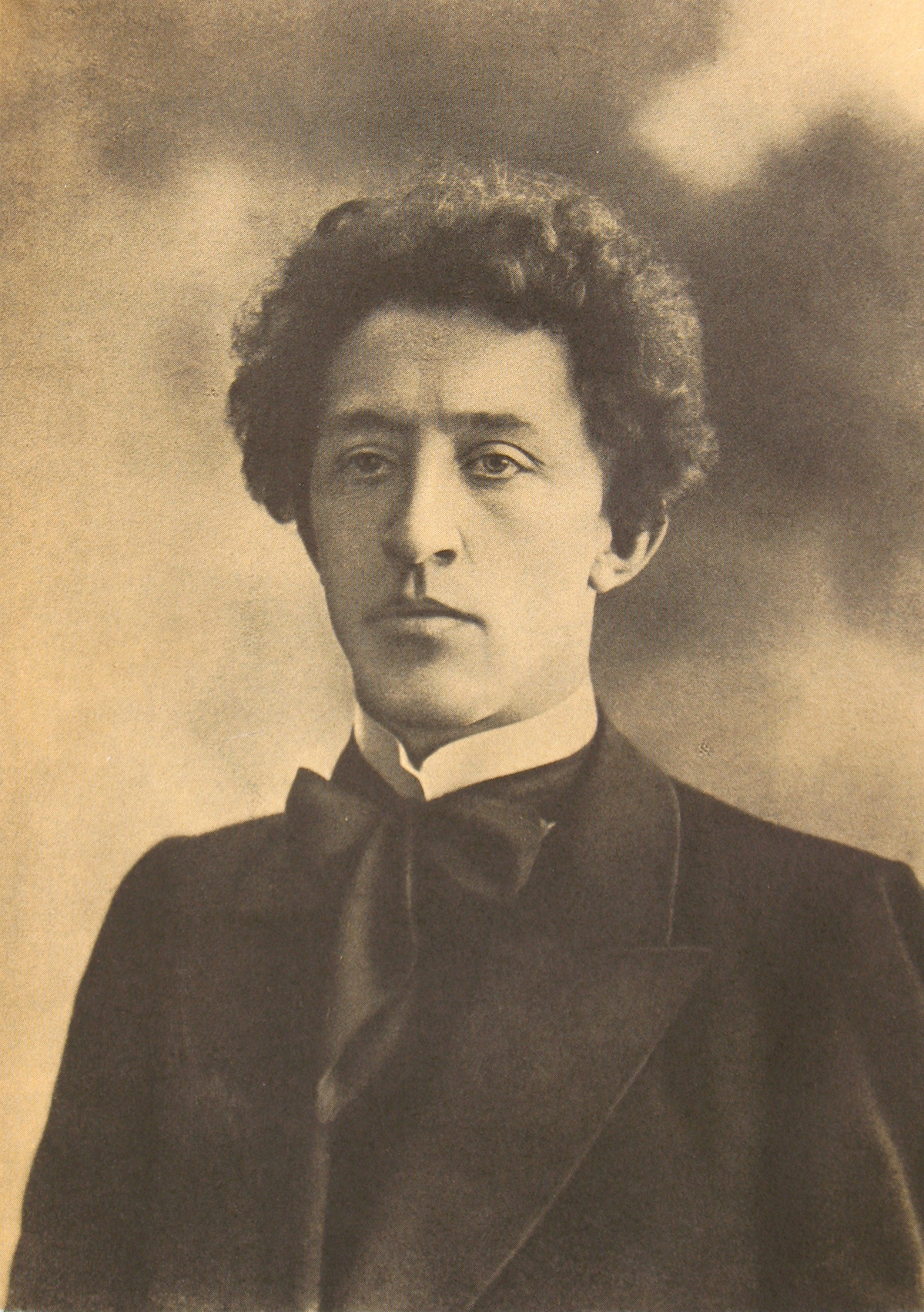
Blok was the main poetic star in the early 20th century, the most popular poet of the so-called Silver Age of Russian poetry and a main representative of symbolism in poetry. He praised the image of the Beautiful Lady and Eternal Feminine. (A waist in satin, like a flower, / Moves past the window in the haze.) This ephemeral creature is a mystical power that the poet is in love with, and it gives him inspiration. Blok’s poems are highly metaphoric and have many layers of sense, and they shouldn’t be read and comprehended literally. The poet witnessed the 1917 Revolution in Russia and experienced it dramatically, creating his famous and mystic poem, The Twelve.
Must read Blok poems:
- The Unknown Lady
- The Twelve
- The night, the pharmacy, the street...
6. Anna Akhmatova (1889-1966)
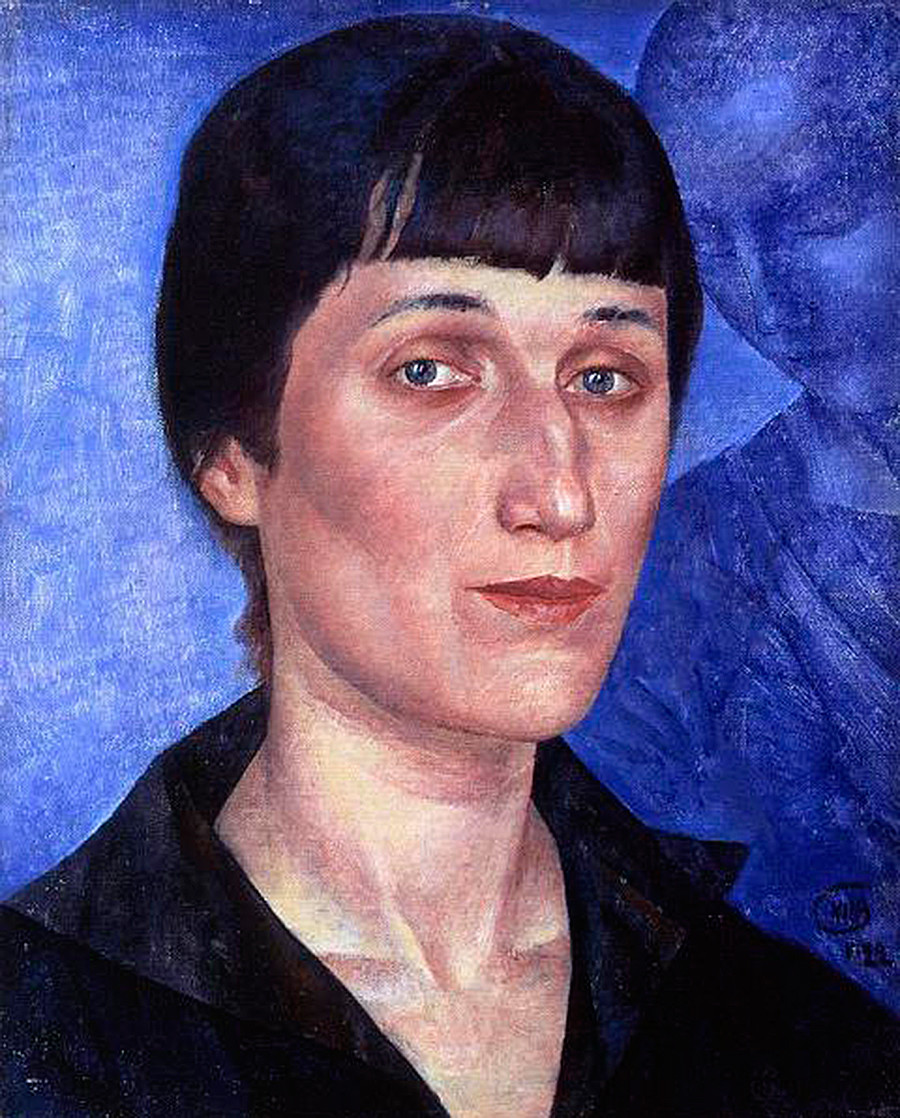
Akhmatova is probably one of the most famous female Russian poets. At the dawn of her ‘career’ she was a part of the Silver Age poetic movement known as Acmeism. These poets were opponents of symbolists (and Blok); they refused to use ephemeral images, but called a spade a spade. They even used metaphors comparing nature or humans with inanimate things.
During the Red Terror, Akhmatova’s husband Nikolai Gumilev was killed; during Stalin’s Great Terror her son, Lev Gumilev, was arrested. Akhmatova spent 17 months (!) standing in lines at an NKVD prison and trying to find out his fate. She dedicated her most famous poem, Requiem, to those women who stood with her with scant hope to ever again meet their relatives. During World War II, Akhmatova was in Leningrad during the Siege, and she read poems over the radio to raise the morale of the local population.
After the war her poetry was deemed harmful for the Soviet nation, and she was banned from publishing. Up to her death in 1966 she was a very reputable poet among the intelligentsia - and her poems were among the first to spread via samizdat - illegal, handmade publications of the Soviet underground.
Must read Akhmatova poems:
- I wrung my hands under my dark veil
- Unsuited for my purpose in rhyming
- Requiem
Read more about Anna Akhmatova here.
7. Marina Tsvetaeva (1892-1941)
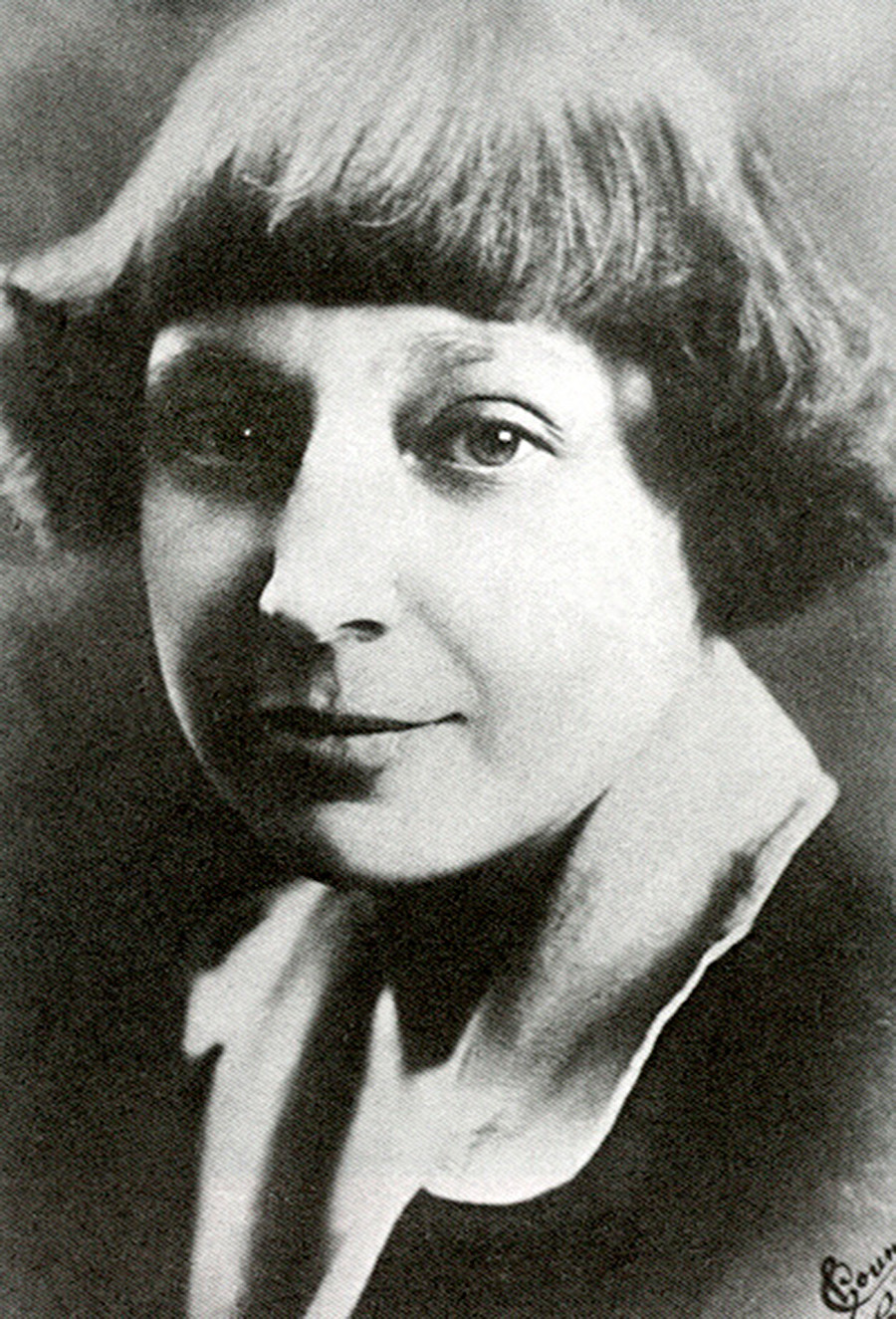
Tsvetaeva was born in a family of Moscow University professor and founder of Pushkin Museum of Fine Arts, Ivan Tsvetaev. She was a well educated girl and started writing poetry at an early age. She sent her first poetic collection to the reputable symbolist poet and publisher Valery Bryusov, who was amazed and wrote in a review: “It felt awkward at moments, as if you looked immodestly through a half-closed window into someone's house and spied a scene that outsiders shouldn't have seen.” Tsvetaeva’s nervous poems reflect very deep personal feelings; they tell about love, passion, and loneliness.
Tsvetaeva’s biography, just like her poems, is full of suffering and loss. During the Civil War she faced hunger and deprivation, and even had to give away her three-year old daughter Irina to a shelter for children, where the girl died. Then, she managed to emigrate to Prague, but yearned for Russia very much and returned at the time of Stalin’s Great Purge. Her husband was arrested and killed, while her older daughter was sent to the Gulag for 15 years. During World War II, Tsvetaeva was sent into evacuation where she also suffered from a lack of money and food - and as a result she committed suicide.
Must read Tsvetaeva poems:
- My rhymes, so early written
- Two hands, lowered, touching lightly...
- I like that you are not in love with me...
Read more about Marina Tsvetaeva here.
8. Sergei Yesenin (1895-1925)
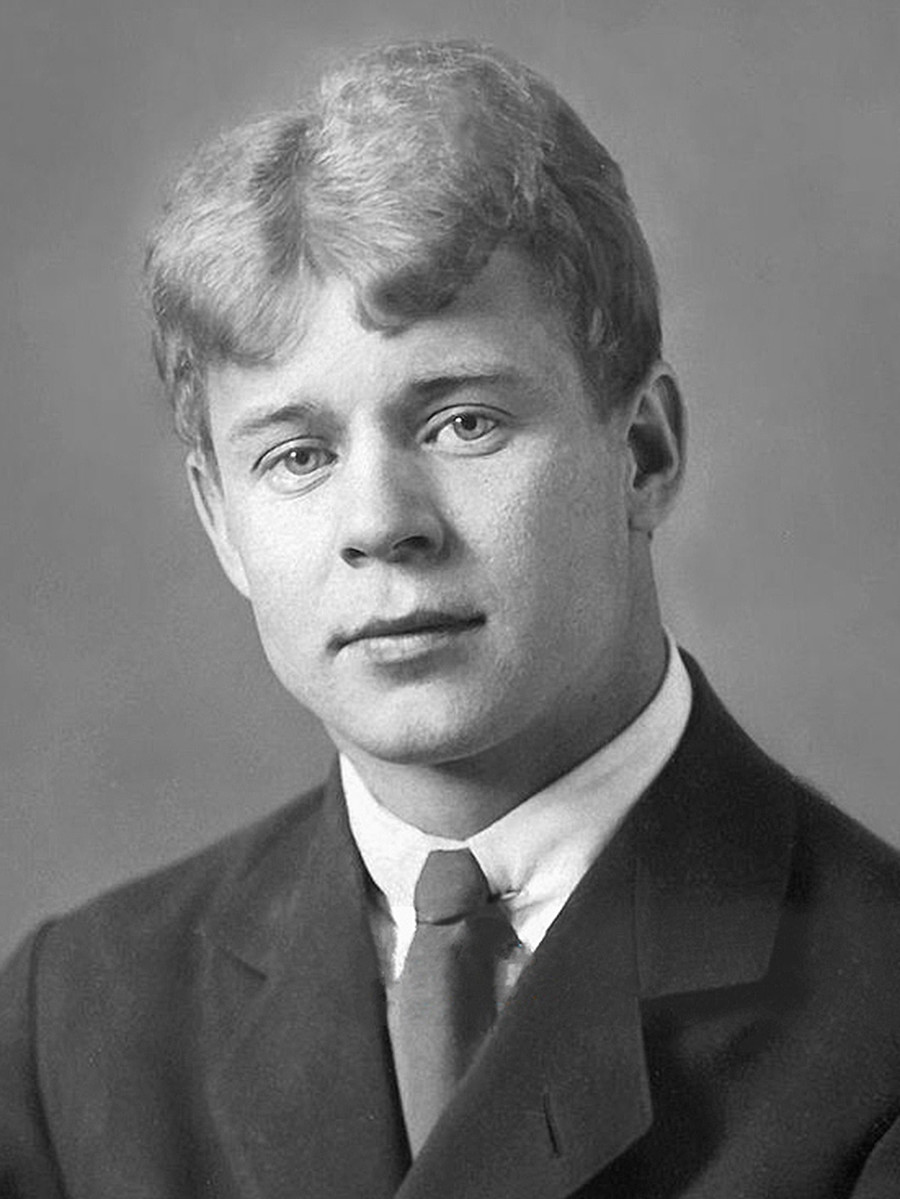
Critics still argue whether Yesenin is a great poet, but for sure he is one of the most beloved owing to the deceptive simplicity of his poems. He praised Russian nature, wrote heartbreaking poems about the beauty of golden fields, birch trees and the expanses of our motherland. (Those who have had the chance to visit his native village of Konstantinovo in Ryazan Region, or actually any Central Russia hinterland, can imagine what expanses and landscapes he means).
He called himself a hooligan and in his lyrics confessed about his way of life: binges and drunken brawls… “I am a Moscow mischievous playboy,” he wrote in one poem. And for his whole life he tried to find that balance of the devil inside of him and the angels that helped him love and write poetry. In 1925, he was found dead in a Leningrad hotel, and it’s still not entirely clear whether he killed himself or was killed by Soviet secret police.
Must read Yesenin poems:
- Yes! It's decided now. Without return
- There was only one game now lacking
- I do not regret, and I do not shed tears
Read more about Sergei Yesenin here.
9. Vladimir Mayakovsky (1893-1930)
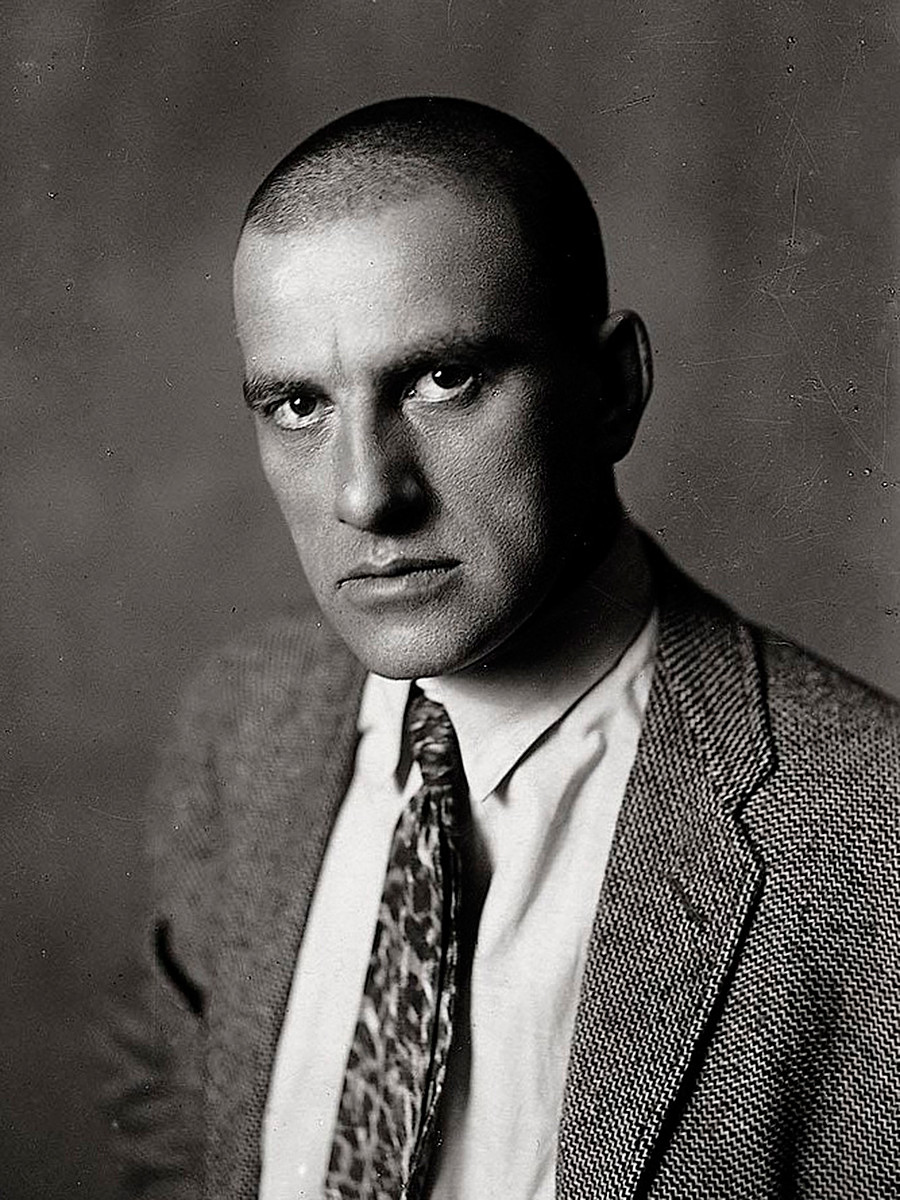
Mayakovsky was a representative of Futurism, the avant-garde poetry movement. He wanted to ruin the old rhythm and rhymes, and created an absolutely new stanza in their place. His ragged poems had an unusual, for those times, graphic and brave daring themes and words. And he was very keen on the Bolshevik Revolution and the new regime. “Eat your pineapples, chew your grouse, / Your last day draws near, you bourgeois louse!”
Mayakovsky was a Malevich for poetry, but he also brought new breath into drama and theater art, and even tried himself in cinema. He was also one of the first to create advertising posters in an astounding avant-garde style.
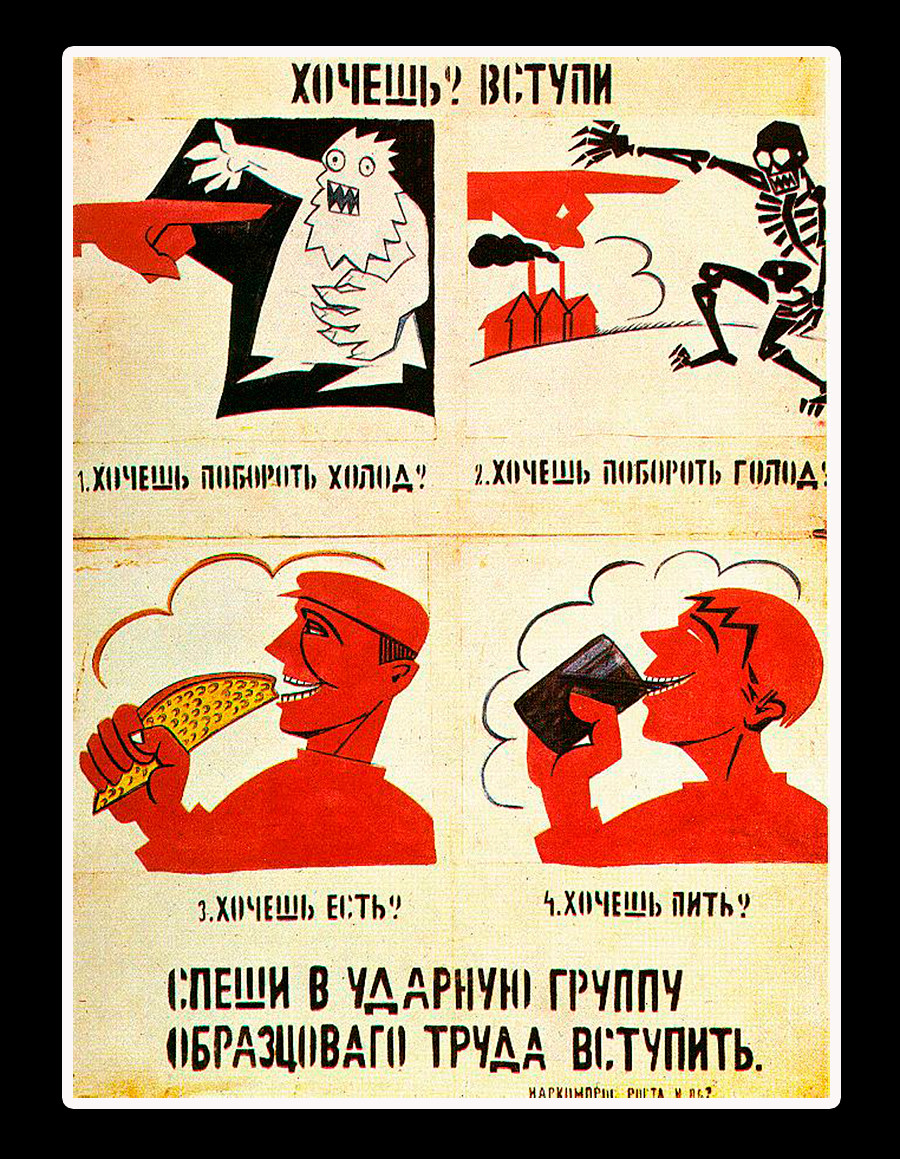
His lifestyle was also quite modern for his times - he lived with his beloved, Lilya Brik and her husband, Osip Brik. Today, we would say that it was a toxic relationship, and indeed Mayakovsky suffered a lot (his fans even consider Lilya to be a witch). His poetry and life was so vivid that it burned out too fast - aged 36, he shot himself.
Must read Mayakovsky poems:
- Lilichka (instead of a letter)
- A Cloud in Trousers
- And Could You?
Read more about Vladimir Mayakovsky here.
10. Joseph Brodsky (1940-1996)
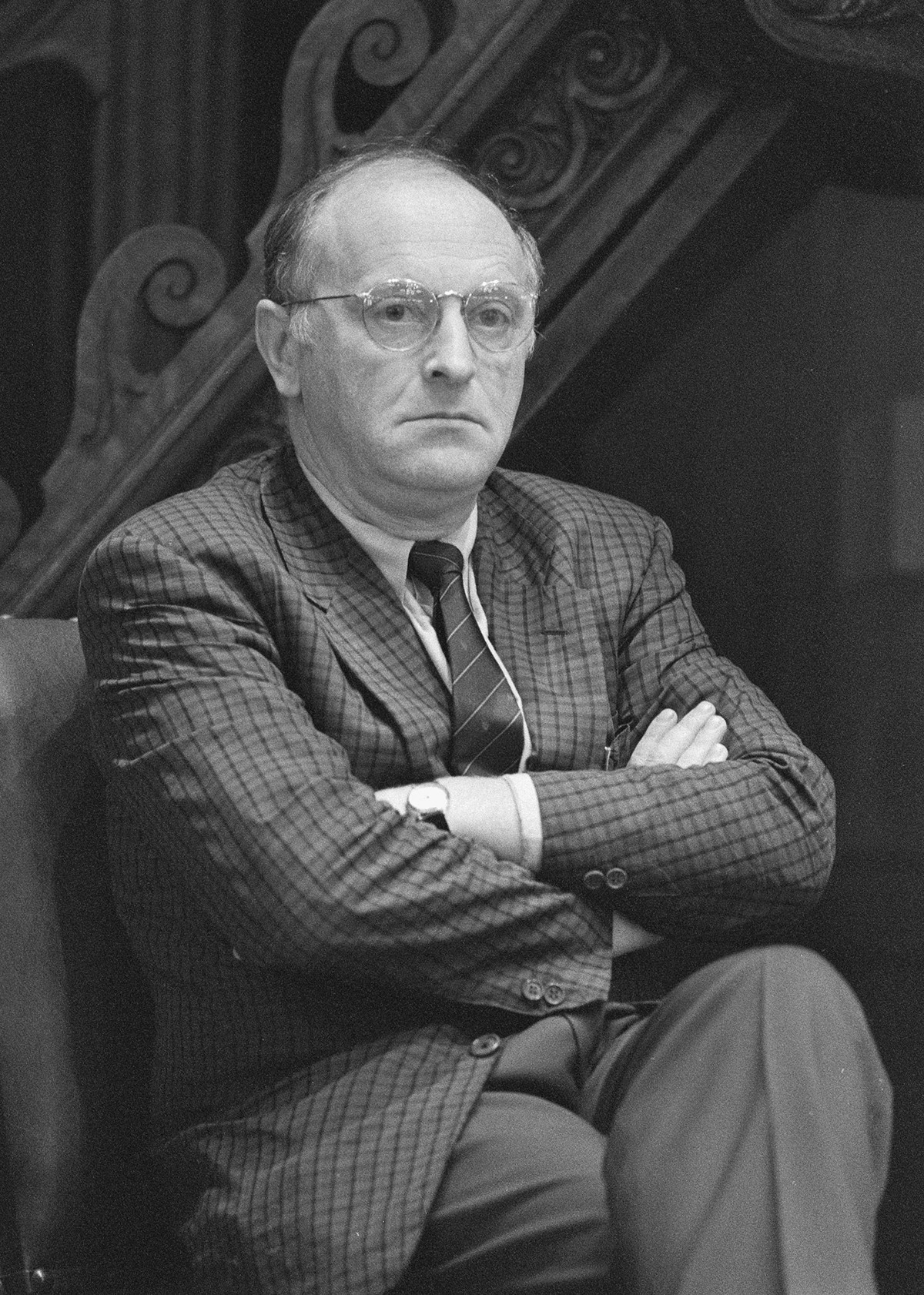
One of the most sophisticated Russian poets was incredibly beloved for the intelligentsia in the Soviet Union, and today he is one of Russia’s poetic idols - in large part because of his aureole as an exiled poet. Official Soviet papers called Brodsky a “Near-Literary Drone”, and his poetry was labelled to be decadent and alien for the Soviet people, and he was not published in the Soviet Union. He was charged with social parasitism, since he didn’t have a job (such a status was illegal in the USSR).
Brodsky couldn’t earn money with his poetry and he was exhausted by KBG’s surveillance. Nevertheless, Brodky kept writing and reading his poems during gatherings of creative people and he even published them in the West. Finally, state authorities asked him to leave the country. His American publishers helped him to reach the U.S. and to get a poet-in-residence job at Michigan University. He taught Russian literature, and in 1987 he was awarded the Nobel Prize in literature.
Must read Brodsky poems:
- Moscow Carol
- Pilgrims
- Don't Leave the Room
Read more about Joseph Brodsky here.
If using any of Russia Beyond's content, partly or in full, always provide an active hyperlink to the original material.
Subscribe
to our newsletter!
Get the week's best stories straight to your inbox